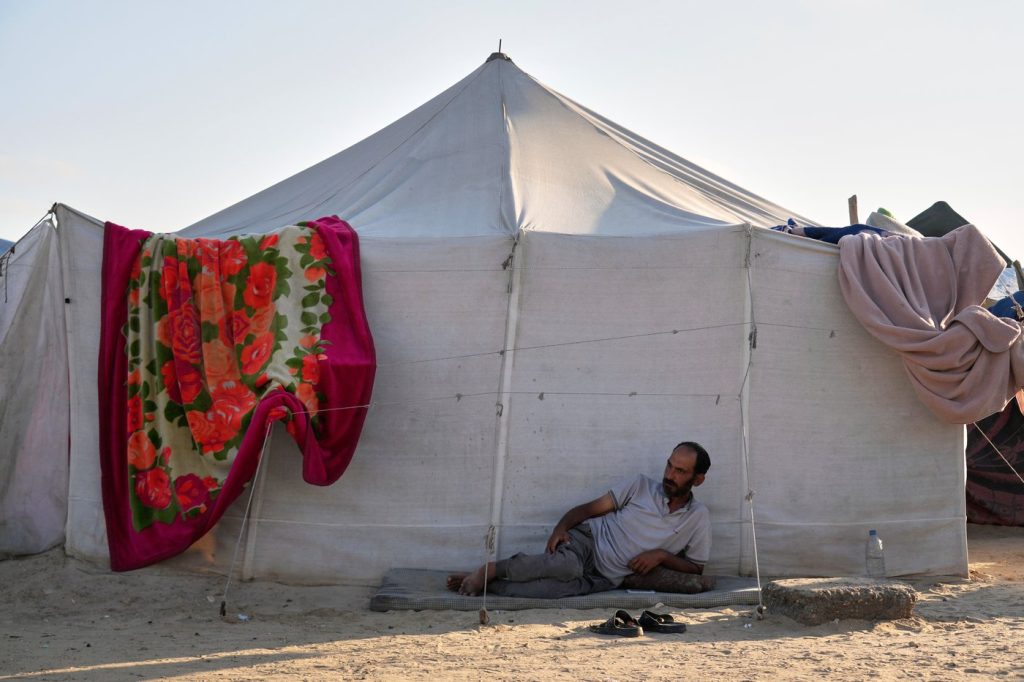In Khan Younis, Gaza Strip, the summer heat exacerbates the daily struggles of families like that of Rida Abu Hadayed. With temperatures surpassing 30 degrees Celsius (86 degrees Fahrenheit), Rida and her seven children endure sweltering conditions inside their cramped nylon tent. Outside, the humidity is overwhelming, leaving them desperate for any form of relief.
Rida, a 32-year-old mother, combats the heat by fanning her children with whatever is available—trays, scraps of paper, or pouring scarce water over them. The lack of electricity compounds their suffering, as the children are unable to sleep and spend the day crying due to the oppressive heat. "There is no electricity. There is nothing," she lamented, her face glistening with sweat.
The situation in Gaza has deteriorated drastically, with intensified hardships for the 2 million residents. Aid organizations have raised alarms over the escalating issues, including limited water availability, failing sanitation systems, and inadequate living conditions, which pose serious health risks to communities. Many residents are now displaced and forced to live in temporary tented communities.
As summer unfolds, families struggle with the scarcity of clean water. Most people in Gaza are required to trek long distances to locate water, rationing each precious drop, which limits their ability to maintain hygiene or cool down. Yousef Hadayed, Rida's husband, noted, "We are only at the beginning of summer. And our situation is dire."
The humanitarian crisis has been worsened by Israel's blockade, which restricted food, fuel, medicine, and other essentials from entering Gaza for almost three months. Although limited aid was allowed in May, critical supplies like fuel—which are necessary for water pumping and desalination—remain unavailable. According to a recent report from the United Nations Office for the Coordination of Humanitarian Affairs, only 40% of drinking water production facilities in Gaza are operational, with many on the brink of collapse. Up to 93% of households are experiencing water shortages.
The Hadayed family was displaced after evacuation orders required them to abandon their homes in eastern Khan Younis. "Our lives in the tent are miserable. We spend our days pouring water over their heads and their skin," stated Yousef about their dire conditions. Water scarcity complicates their attempts to provide basic care for their children. UNICEF has warned that without the entry of fuel supplies, children in Gaza face the dire threat of dehydration.
Reham Abu Hadayed, a relative of Rida, also displaced from eastern Khan Younis, expressed her concern for her four children, saying, "I don’t have enough money to buy them medicine." The health risks continue to grow as garbage accumulates on the streets, attracting flies and mosquitoes. Mohammed al-Awini, a 23-year-old resident, highlighted the added distress caused by these insects, particularly at night. "We are awake all night, dying from mosquito bites," he said, emphasizing the exhaustion faced by many families living under these dire circumstances.
As the Gaza Strip faces relentless challenges, including soaring summer temperatures and a critical lack of resources, the humanitarian situation continues to deteriorate, leaving families like the Hadayed struggling to survive each day.











